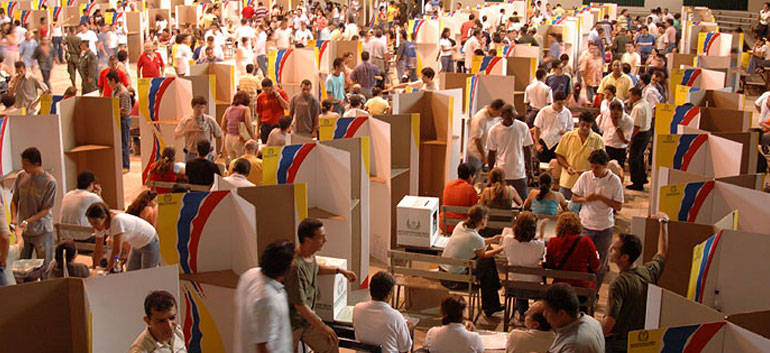Colombia on Sunday will vote to elect a new congress. The lawmakers selected by the day’s end will inevitably face some of Colombia’s most challenge issues including a possible peace deal with the country’s largest rebel group, the FARC.
Colombia’s congressional elections, held the second Sunday of March every four years, come at a crucial time for the South American country of nearly 48 million people.
“This election is different, it is distinctive, it is the most important congressional election in the last fifty years in our country,” said Liberal Party (Partido Liberal-LP) Senator Juan Manuel Galan, who is seeking re-election.
The stakes in the elections are high as president Juan Manuel Santos risks losing his power over the legislative branch if he fails to maintain his majority coalition in congress.
MORE: What’s at stake for Santos in Colombia’s elections: Losing control over Congress
Former President Alvaro Uribe faces risking his reputation as he runs for a spot in the Senate with the strong support of his newly created political party, the Democratic Center (Centro Democratico-CD) — current polls predict him to win.
Pending reforms
Meanwhile on the to-do list for the congress-elect will no doubt include legislation reforming Colombia’s justice system, a project that has been attempted time and time again only to continue to fail amidst scandal for nearly half a decade.
MORE: Colombia needs justice reform: Santos
Following widespread protests, strikes, and demonstrations in 2013, Colombians will be looking for health care reform from their representatives soon as more citizens are left without health care coverage.
MORE: Colombia health reform: The big issues
There is also the real possibility of amending or radically changing the 22 year old constitution to change presidential and other elected official term limits.
MORE: Santos calls for longer political terms and no reelections
Legislation necessary in the event of a peace deal with the FARC
|
Possible peace deal with FARC
And perhaps the most important issue that will face the new 102 senators and 166 representatives in the house, will be how to deal with an eventual peace accord with Colombia’s oldest living guerrilla group, the FARC, with whom the government has been in an armed conflict for 50 years now.
The government and the FARC have been negotiating now for almost a year and a half now in Havana, Cuba, and the two delegations have already come to two agreements on agrarian reform and political participation, out of the total six agenda items to be discussed.
While congress approved a referendum to ratify an eventual final peace deal, there will still likely be many questions in the legislature ahead as to what any complete agreement would look like in practice.
MORE: Colombia’s Congress approves referendum to seal eventual peace deal with FARC
Congressional division
This will ultimately fuel the Santos-Uribe presidential feud, as without a strong coalition in congress, the pro-peace dialogues Santos will face many challenges especially as anti-peace dialogues Uribista party grows in power and influence.
The representatives-elect of the Conservative Party (Partido Conservador-PC) might end up becoming the most valuable swing votes of sorts as both the president and former president will fight for their support.
Finally there is a possibility that voters will come out and reject all candidates and decide to vote blank on the ballots, hoping to force the reigning political class out of government.
MORE: The blank vote explained: Colombia’s biggest electoral gamble
Polling stations are expected to stay open until 4PM local time. According to the National Registry’s Office, the agency responsible of ballot counting, said to expect to have the almost final election results by 8PM local time.


